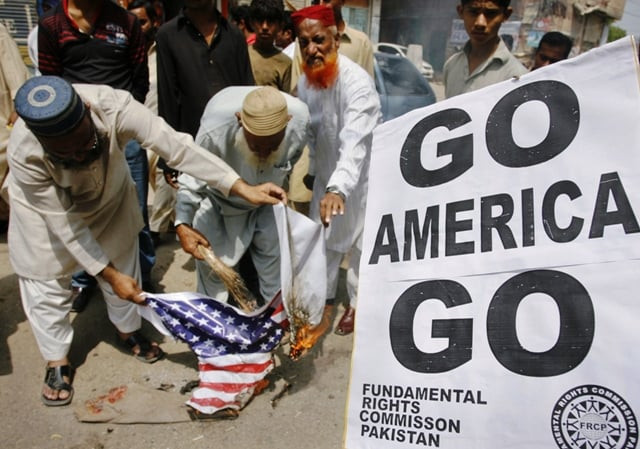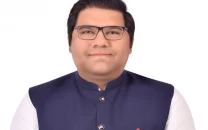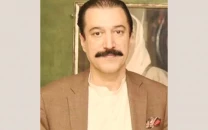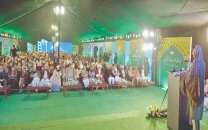Analysis: Why do we love to hate the US?
At least eight issues, some immediate and others long standing, seem to have caused this anger to deepen lately.

The Memogate controversy is getting murkier with hints that, as the case proceeds in the Supreme Court, the appellant, Nawaz Sharif may request the court to issue instructions to the federal government to ask the ISI chief to resign as hinted by the Leader of the Opposition Chaudhry Nisar in the National Assembly on Thursday.
The self proclaimed co-author of the so-called memo, Mansoor Ijaz has alleged that at about the time the memo was being given final shape, General Pasha was seeking ‘approval’ of some Arab rulers to send President Asif Zardari home.
One hopes that Chief Justice Iftikhar Mohammad Chaudhry would finally rescue the country from the depths it has been descending since 1954 following the infamous verdict of Justice Munir in Speaker Tamizuddin’s case. However, at this point it would only be fair to let the case journey through its judicial course without any attempts from any quarter to influence its verdict from outside and let it come to its justifiable end.
Meanwhile, let us analyze the new found anger of Pakistan against the US. An indirect manifestation of this anger is palpable in the replies submitted to the SC by both the Chief of Army Staff General Kayani and the ISI chief.
On the face of it, at least eight issues, some immediate and others long standing, seem to have caused this anger to deepen lately. First, in the immediate run, Pakistanis are justifiably angry because, in what they have been told to believe to be a deliberate attack by the Nato helicopters on our border posts last month, 24 soldiers including two officers were killed. Second, they are also annoyed at the US for intruding far into our territory without permission and killing Osama Bin Laden in May this year. But the relations between Pakistan and Washington were already going downhill since 2009 because of the third issue – one which concerns a particular slant in the Kerry-Lugar-Bremen aid bill which has been perceived to be curtailing the political predominance of our security institutions in the Islamabad-Washington equation. The recent freeze of US$700 million military aid to Pakistan throws into bold this particular slant.
Fourth, the ‘do more’ mantra, particularly in relation to the so-called Haqqani network and Quetta Shura, and fifth, the continuous drone attacks that have been causing widespread ‘collateral damage’, have also not helped matters.
Sixth, the US-India strategic and nuclear agreements. Seventh, the Afghan-India strategic agreement under which India will train the Afghan army and its civil service. Eighth, the US decision to give a prominent role to India in the Afghan end game.
But then the drone attacks were already OK-ed under an MoU sealed between Pentagon and the security institutions headed then by former President Gen Pervez Musharraf midway through his rule. And for the last several months, people at large were asking the ruling elite, which includes the security institutions as well, why something was not being done to stop these attacks. Early on, our Air Force chief had responded publicly to these questions saying he can bring the drones down if the government ordered him to do so, creating an impression that it was the civilian cowards heading the government. But the question is, would his own officers and those of the Army not know better than to see through his disingenuous statement and raised their own questions? Who does not know as to who makes and runs our foreign and defense policies?
I do not know, but I would be very surprised if questions had not been raised among the rank and file of the armed forces as to why after our border posts had been attacked twice or thrice in the past the leadership of security institutions neglected to take firm steps to prevent a repetition and that too of a colossal nature. It was perhaps to quell similar but tougher questions that the Army chief took a quick tour of garrisons soon after the Osama episode. I am not sure if the pressure on the leadership to come clean has eased on from within the institutions. Again, I do not know, but I do not think the thinking arms of the armed forces have given up asking questions about the attack on the GHQ in October 2009 and Mehran base in May this year. And I am also not sure if these incidents had not affected the morale of our troops who put their lives on line while defending our country.
And I also do not rule out the possibility of questions being raised within the security institutions that, if the leadership were handling the foreign and defense policies as competently as it has been claiming all along, then how is it that we have become, within a few years, from being the most allied ally of the US to a country complicit in deadly double games; why has the very friend we had chosen to neutralize Indian threats gone and joined hands with our enemy number one; how have we landed ourselves in a position of facing two hostile fronts with Afghanistan, the country which we thought would provide us the much needed strategic depth vis-à-vis India, pushing us back across the Durand line?
So, could it be possible that, in order to divert the attention of those asking questions from within and for abating the downslide in the morale of the rank and file, the leadership of security institutions has decided to invoke national honor and patriotic sentiments. And, for that, it seems to have chosen the easiest punching bag – the US, a country construed the world over to be promoting its interests without a thought for the world itself.
Any such diversion would be even more potent with one added ingredient: an elected government shown to be involved in selling national interests to Washington.
Published in The Express Tribune, December 17th, 2011.



















COMMENTS
Comments are moderated and generally will be posted if they are on-topic and not abusive.
For more information, please see our Comments FAQ